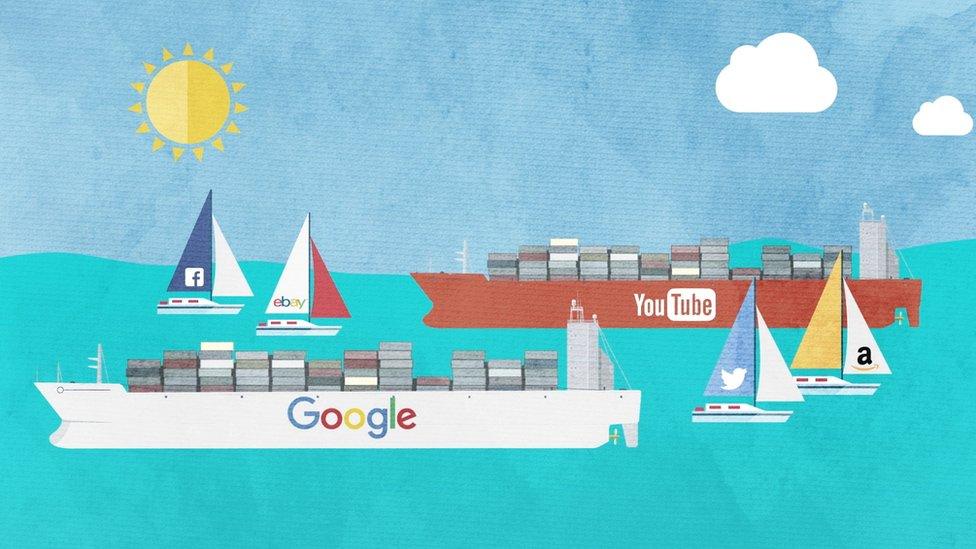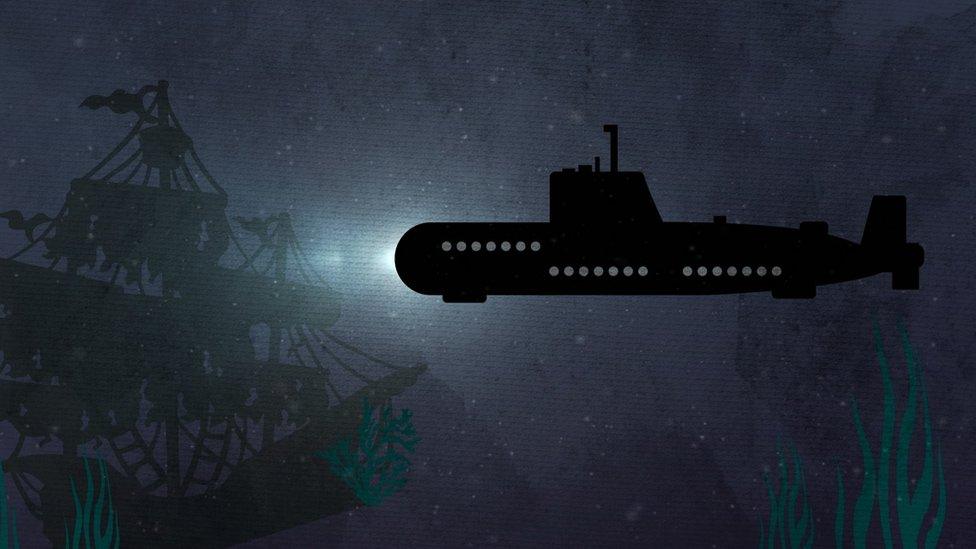Journey to the dark web
- Published
This animation shows you the layers of the internet - and the dark web.
The dark web is the most hidden part of the internet where illegal items, from drugs to weapons, can be bought and sold anonymously.
A Newsbeat investigation found that "millions of pounds of drugs are bought online every day" and delivered unknowingly by UK postal workers.
Delivery staff who said they had "definitely handled suspect packages" told us there is "nothing they could do".
Royal Mail says it does not knowingly carry any illegal items in its network.

The "surface web" is the bit we are all familiar with - it's where you watch videos, read news stories and shop online
Most users access the dark web via free software which conceals their identities and their online activity from surveillance, such as the Tor browser.
"Tor" stands for "The Onion Router" and it directs internet traffic through a vast network consisting of more than 7,000 relays to conceal a user's location and usage.
It was first developed in the mid-1990s by US military researchers and released into the public domain to make it harder to separate government messages from the general noise.
Now it's a key route to illegal trading on the dark web.
How we used the dark web to investigate drugs in the post
Newsbeat ordered MDMA, cannabis and former legal high Spice on one of the dark web's marketplaces using virtual currency Bitcoin.
Deliveries to a PO Box took around a week to arrive.
We then collected the drugs and gave them to a government-approved lab for testing and destruction.
Newsbeat spoke to delivery staff who said they had "definitely handled suspect packages" but there was "nothing they could do".
We were told that some random spot-checks do occur but most workers we spoke to had never seen a sniffer dog.

The dark web is a murkier part of the internet, a collection of thousands of websites that use anonymity tools to hide their IP address
The Home Office says it is spending £1.9m trying to "increase understanding" in how organised crime networks "adapt and diversify" using technology.
A Royal Mail spokesperson said: "Where Royal Mail has any suspicion that illegal items are being sent through our system, we work closely with the police and other authorities including the Medicines and Healthcare products Regulatory Agency to assist their investigations and to prevent such activities from happening."
Animation by James Mobbs.
Find us on Instagram at BBCNewsbeat, external and follow us on Snapchat, search for bbc_newsbeat